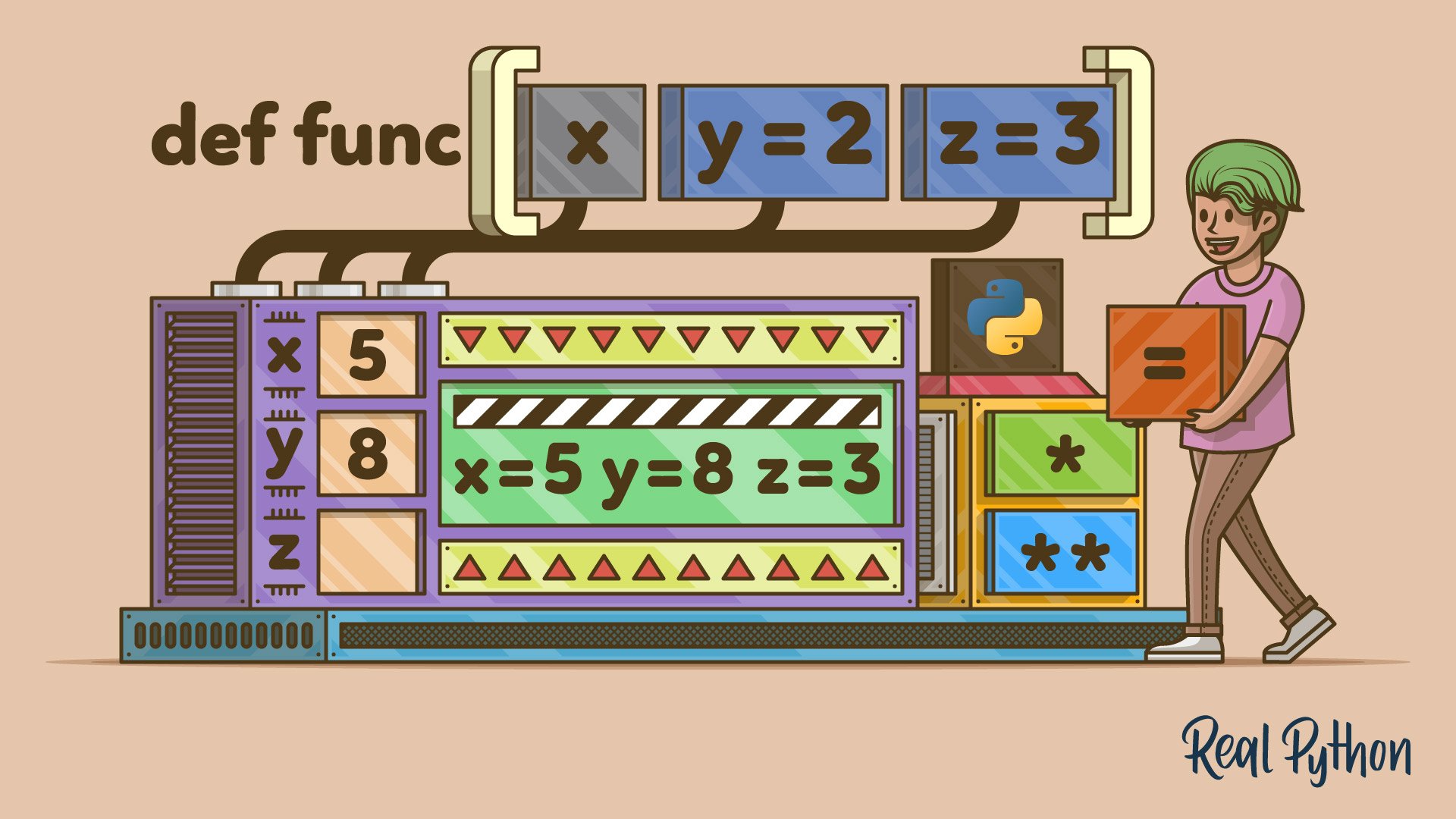
"You'll revisit how Python handles parameters and arguments-from default values and their order to flexible patterns like *args and **kwargs. You'll also see when a simple Boolean flag can make your function calls clearer and more expressive. In this quiz, you'll test your understanding of how mutable default argument values can lead to unexpected behavior. You'll also practice unpacking sequences and mappings in function calls and formatting output with flags. For a deeper dive, check out the guide to optional arguments."
"The quiz contains 8 questions and there is no time limit. You'll get 1 point for each correct answer. At the end of the quiz, you'll receive a total score. The maximum score is 100%. Good luck!"
Python parameter handling includes default values, parameter order, and flexible argument patterns such as *args and **kwargs. Mutable default argument values can produce unexpected behavior and require careful handling. Simple Boolean flags can make function calls clearer and more expressive when used appropriately. Unpacking sequences and mappings into function calls and formatting output with flags are practical skills for writing concise and readable code. An eight-question, untimed quiz provides practice on these topics, awards one point per correct answer, and reports a total score with a maximum of 100 percent. The material emphasizes avoiding common pitfalls and improving function-call clarity.
Read at Realpython
Unable to calculate read time
Collection
[
|
...
]